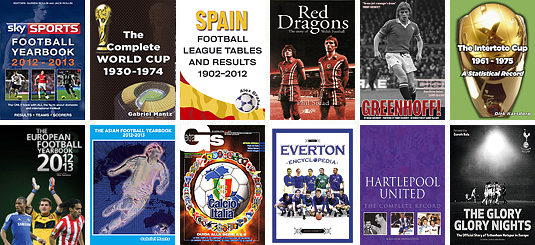Plain Strains and Auto-biographies (Act I)
 Reading football biographies or autobiographies is fine as long as you don’t expect them to tell the whole truth about anyone. By their very nature, they have got to be selective. A biography is about a footballer so can never fully penetrate inside the subject’s thoughts. An autobiography is worse for the very reason that it can. In what kind of scrambled mess are your thoughts on a daily basis? So an autobiography is, at best, a selective look at things and, annoyingly, as most of them are ghosted, they’re still biographies after all. Because most top footballers do whatever great things they do by instinct and are pretty uneducated geezers, publishing houses daren’t let them loose on a keyboard as an actual autobiography would be something like Billy Casper’s ideal day from ‘Kes’, phonetic spelling, jumbled sentences and all.
Reading football biographies or autobiographies is fine as long as you don’t expect them to tell the whole truth about anyone. By their very nature, they have got to be selective. A biography is about a footballer so can never fully penetrate inside the subject’s thoughts. An autobiography is worse for the very reason that it can. In what kind of scrambled mess are your thoughts on a daily basis? So an autobiography is, at best, a selective look at things and, annoyingly, as most of them are ghosted, they’re still biographies after all. Because most top footballers do whatever great things they do by instinct and are pretty uneducated geezers, publishing houses daren’t let them loose on a keyboard as an actual autobiography would be something like Billy Casper’s ideal day from ‘Kes’, phonetic spelling, jumbled sentences and all.
There is also the problem that a biography is about a footballer’s whole life and most people are only really interested in the great matches bit. Who’s bothered if the hero scraped his BMW in a Tesco car park, except in a cruel way? I have a friend who has bought a house once owned by a famous footballer. He thinks it’s great until he has to visit the bog. Then his identification with the hero is all too real and somewhat depressing.
The reader’s age is very important too, especially if reading about a current footballer – which is most likely. Want to read about an ex-footballer? Sorry says the librarian, that book has been moved to the History Section. (This would include people like Brian Robson and Gary Lineker.) When you are young enough for it to still make a difference, you read about a famous footballer to find out two things;
1) How they did all those bits of amazing skill (so that you can copy them and become great too.)
2) How they are great people, having great lives, (so that you can be like them in that, too).
Added to this, it is only fair to point out, is the hope that you can copy them and be like them even as far as having to go out with all those beautiful women who know nothing about football but plenty about money, camera shots, fast cars and fame. Occupational hazard innit? Comes with the territory, Bruv.
More mature readers – and I class myself in this category, agewise at least – tend be a little more bitter and twisted, reading to find out two things:
1) How they did all those bits of amazing skill (and why you were unable to copy them and become great too.)
2) How they are not really great people, having great lives, (so that you can also feel better about missing out on all that.)
Added to this, it is only fair to point out, is the hope that since you weren’t able to copy them and be like them even as far as having to go out with all those beautiful women who know nothing about football but plenty about money, camera shots, fast cars and fame, you hope they have had to spend long, unpleasant hours afterwards in various clinics as a consequence. Then you can tut-tut about the wasted lives of such former greats as Jimmy Greaves, George Best and Paul John Gascoigne.
I think I have to blame Roy of the Rovers for much of this. Ok, ok, he wasn’t actually real, but he was almost real and became the model against whom every footie hero had to be measured. If not quite Art mirroring life, it was Art mirroring a kids’ comic. Roy Race was…
Graeme Garvey